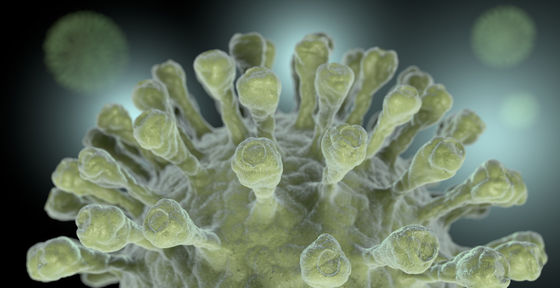Research shows that the new corona 'peplomer' has an adverse effect on heart cells, and it is possible that damage to the human body will continue even if the virus itself disappears.

Previous studies have shown that the new coronavirus
The SARS-CoV-2 Spike protein disrupts human cardiac pericytes function through CD147-receptor-mediated signalling: a potential non-infective mechanism of COVID-19 microvascular disease | bioRxiv
https://www.biorxiv.org/content/10.1101/2020.12.21.423721v2
Covid-19 spike protein binds to and changes cells in the heart
https://www.bhf.org.uk/what-we-do/news-from-the-bhf/news-archive/2021/august/covid-19-spike-protein-binds-to-and-changes- cells-in-the-heart
COVID-19 Spike Protein May Change Cells In The Heart | IFL Science
https://www.iflscience.com/health-and-medicine/covid19-spike-protein-may-change-cells-in-the-heart/
On the surface of the new coronavirus, there is a spike protein that has the role of binding virus particles to the surface of cells. Researchers at the University of Bristol in the United Kingdom conducted an experiment in which the spike protein of the new coronavirus was added to cells collected from the heart to investigate the mechanism by which the new coronavirus causes damage to microvessels in the human body.

The research team is in the small blood vessels of the heart
For some time, research results have been reported showing that peaplomers remain in the bloodstream even after the extinction of the new coronavirus and move to places far away from the site of infection, so the research team said, 'This discovery is Peplomers that circulate in the body may cause dysfunction of cells in blood vessels, causing damage to blood vessels in organs distant from the site of infection, which may have clinical significance. Because, in patients with damaged blood vessels due to underlying diseases such as hypertension, diabetes, and obesity, and increased vascular permeability, peplomer easily spreads between peridermal cells, causing or exacerbating microvascular damage. Because there is a risk of causing it to occur. '

The study reports not only the mechanism by which cells not infected with the new coronavirus are damaged by peplomers, but also the findings that may prevent it. When the research team blocked the action of a receptor called CD147, which is known to bind to the spike protein of the new coronavirus, the reaction between the cell and the spike protein stopped.
Professor James Riper of the University of Glasgow Cardiovascular Medicine Institute, who was not involved in this study, told the British Heart Disease Support Fund, 'The results of this study show how the new coronavirus affects the heart and circulatory system. It could take a step forward in understanding what it might do and lead to new treatments to protect the heart. '
Related Posts:
in Science, Posted by log1l_ks







